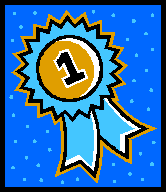|
Up
| |
 Look for this
symbol marking an especially helpful website! Look for this
symbol marking an especially helpful website!
American
English
 |
Notes on American English usage from a UK site (with helpful commentary).
|
British vs.
American English from About.com
 |
"A guide to the differences between American and British English. Are there
really any differences? Is US English a dialect of proper British English? These
resources will let you know when to say Bonnet or Trunk."
|
Includes a
link to a British English - American English translator.
Common
Errors in English

 |
An award-winning site by Professor Paul Brians. An excellent discussion of
common mistakes that native English speakers make with vocabulary words. Helpful
for advanced ESL students.
|
English on the Internet
from the Czech Republic
 |
Learn English word by word - vocabulary topics, false friends, phrasal verbs,
business vocabulary, slang all with a Czech perspective!
|
Words for
our Modern Age
 |
An entertaining and educational look at the Latin and Greek roots behind some
common English words.
|
Vocabulary
at About.com
 |
"This guide provides tips and resources for taking advantage of the abundant
Vocabulary help with all kinds of language including: idiomatic language and
difficult slang/jargon, professional English, specific Internet vocabulary,
vocabulary guides and newsletters, as well as quizzes and vocabulary learning
techniques."
|
Vocabulary Workshop - Roots, Prefixes and Suffixes
 |
"Most words used in the English language today were not
originally English. These words were borrowed (taken) from other languages. The
majority of English words have Latin or Greek origins. When taking the TOEFL*
(Test of English as a Foreign Language), it is helpful to know some of these
origins or "roots" of English vocabulary. It may be possible to guess the
meaning of an unknown word when one knows the meaning of its root. Knowing
prefixes and suffixes can also assist in the process."
|
Vocabulary University
 |
"Separated into 3 levels of difficulty, these free interactive
vocabulary puzzle and activity sessions use Latin and Greek "roots and cells" to
help decode words. 7 links to current exercises include: Fill-in-the-Blanks,
Definition Match, Synonym & Antonym Encounters, Crosswords, Word Finds,
True/False and Word Stories. See our suggestions on How to use Vocabulary.com!"
|
Fake Out!
 |
A fun vocabulary game in which students either guess which
definition is the true one for selected words, or make up their own fake
definitions.
|
Paint by
Idioms
 |
A fun game for learning the meanings of common idioms.
|
|
